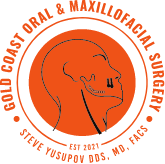Dental Implants – Roslyn, NY
Permanent Prosthetics for
a Longer Lasting Smile
Tooth loss not only affects your self-esteem, but it can downgrade your quality of life as well. Whether it’s one tooth or an entire arch of teeth you’re missing, it’s time to let Gold Coast Oral & Maxillofacial Surgery Steve Yusupov DDS, MD, FACS provide dental implants in Roslyn, NY. We can rebuild your smile in a way that promotes greater stability, functionality, and longevity. If you’re ready to learn more about this unique service, contact us today.
Why Choose Gold Coast Oral & Maxillofacial Surgery Steve Yusupov DDS, MD, FACS for Dental Implants?
- 1
Expert Oral &
Maxillofacial Surgeon - 2 Offers IV Sedation in State-of-the-Art Surgical Facility
- 3
Advanced Dental Technologies for
Precise Treatment Planning
What Are Dental Implants?
Teeth have two parts: the crown and roots. Traditional dental bridges and dentures only replace the crown, whereas dental implants mimic the complete structure of the tooth. These small prosthetics are made of titanium and surgically placed into the jawbone to replace the roots of the missing tooth. Fusing with the bone, it creates a solid foundation. Topped with a customized restoration (i.e., crown, bridge, denture), they’re versatile and natural in look, feel, and function.
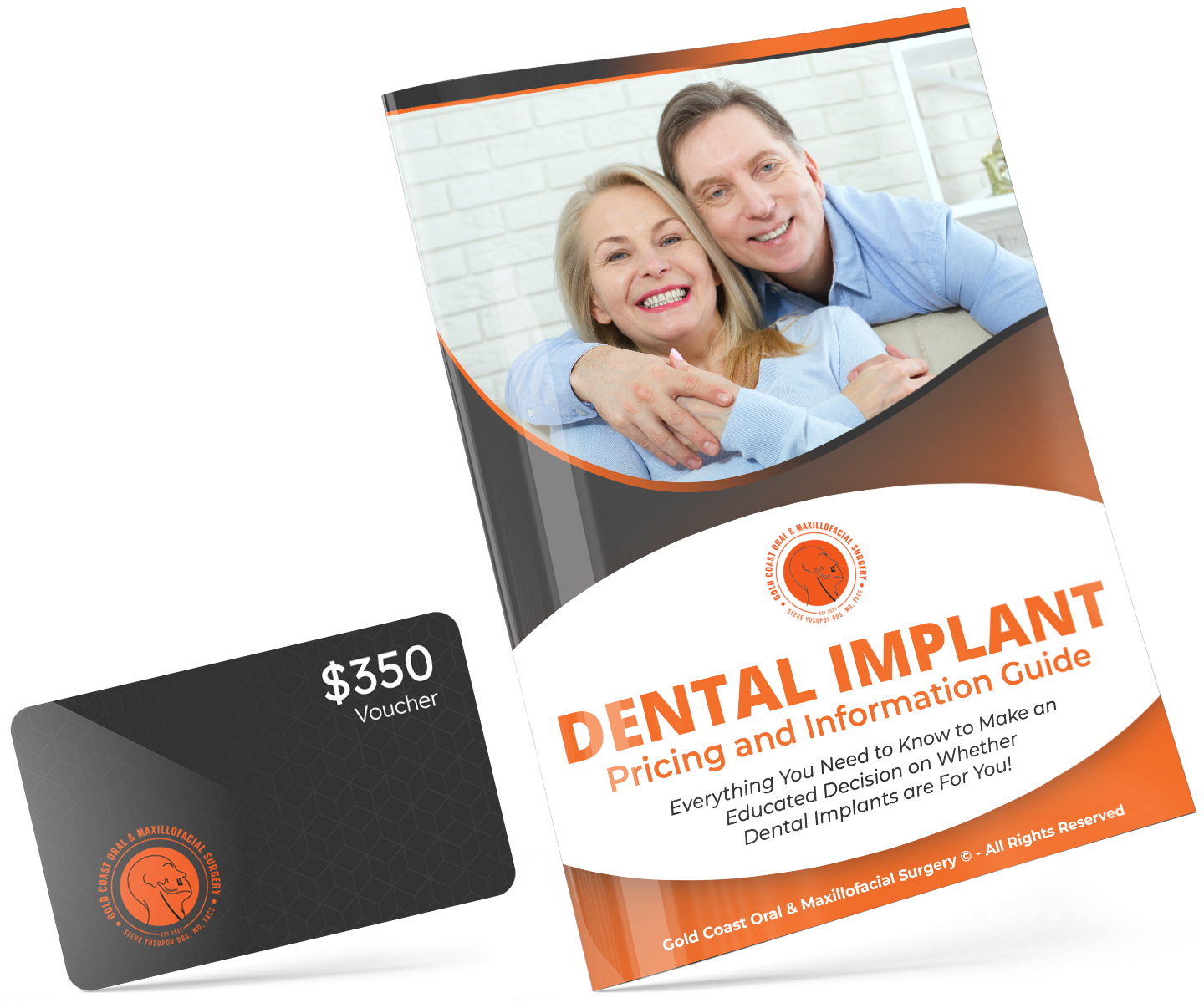
IF YOU HAVE MORE QUESTIONS
CONTACT US
The Benefits of Dental Implants

As the gold standard for tooth replacement, millions of Americans are living with dental implants and embracing the countless benefits that they offer. Dr. Yusupov is pleased to provide this service to patients suffering from tooth loss, allowing them to restore, rebuild, and transform their smiles in a way that promotes improved quality of life.
Day-to-Day Benefits

- Eat All of Your Favorite Foods. Unlike with traditional dentures that may shift in the mouth, implant dentures and prosthetics are stable and strong, with the ability to restore up to 80 percent of your bite power. This means you won’t have to limit your diet and cut out chewy or hard foods like steak and crusty breads.
- Boosted Confidence. Due to their natural look and feel, dental implants in Roslyn are able to boost your confidence, allowing you to let your smile show without having to feel self-conscious of whether or not it looks like the real deal.
- Speak Easily. Due to the added stability of dental implants, you can also speak more easily, avoiding lisps and getting caught on your words due to a foreign-feeling prosthetic in the mouth.
Health Benefits

- Preservation of Jawbone Density. One of the most unique features of dental implants is that they’re able to fuse with the jawbone due to their biocompatibility. This means that they’re able to function like your natural roots, providing necessary blood flow and stimulation to the jawbone to keep it from deteriorating over time from not being used. Not only does this keep the bone strong, but it also helps preserve your facial structure.
- Improved Oral Health. Dental implants are easy to care for. Simply take care of them like your natural teeth, being sure to brush twice a day, floss daily, and visit your implant dentist in Roslyn every six months for a checkup and cleaning to keep your new teeth and gums healthy!
- Easier to Maintain a Nutritious Diet. In addition to being able to keep eating your favorite foods, maintaining variety in your diet can also ensure that you get all of your food groups in.
Long-Term Benefits

One of the key long-term benefits of dental implants in Roslyn is that they have the ability to last for several decades with routine care and proper maintenance. With an impressive success rate of 98 percent, patients are able to count on their prosthetics not only functioning well, but also improving their quality of life for 25+ years, making them a worthy investment.
The 4-Step Dental Implant Process
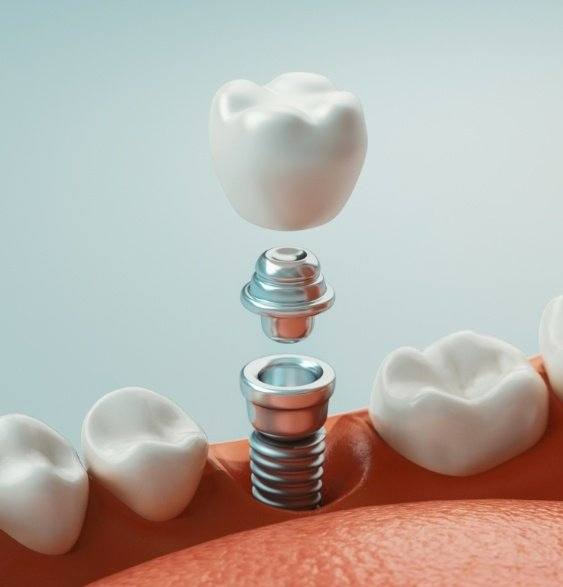
The process of restoring your smile with dental implants in Roslyn requires time and patience, but most people who have gone through the treatment will agree it was well worth the effort. There are multiple crucial steps every patient must go through to achieve a smile that lasts for decades and remains strong and stable. Although no two cases are alike, the same steps are followed: consultation, dental implant surgery, osseointegration, and placement of the restoration.
Initial Dental Implant Consultation

Every dental implant process in Roslyn begins with a consultation with Dr. Yusupov. Using the latest technology, like our cone beam CT scanner, our team will examine your mouth and determine whether any preparatory surgeries or procedures are needed to ensure the success and stability of your dental implants. This is largely due to the fact that if you’ve been missing teeth for a while, jawbone deterioration can occur which can impede the implants’ ability to fuse with the bone. We’ll also make sure that any lingering oral health problems receive proper treatment before moving forward with the surgery.
Prior to scheduling your next visit, Dr. Yusupov will discuss your goals with you as well as your medical and dental history. He’ll walk you through your treatment plan and answer any lingering questions or concerns you may have. Once you decide dental implants are right for you, our team will schedule the next phase of your procedure.
Dental Implant Surgery

Dr. Yusupov is an oral surgeon, meaning he has completed specialty training in oral and maxillofacial surgery, including but not limited to a four-year residency and one-year general surgery training. The advanced knowledge and skills that he gained during this rigorous training ensure he is qualified to complete the entire dental implant procedure in-office, including the placement of your dental implants in Roslyn.
During this step, Dr. Yusupov will utilize a 3D-printed surgical guide to precisely place the implants below the gumline and into the jawbone for the best outcome. Many patients are able to recover from their surgery quickly and return to work within one to two days.
Dental Implants Osseointegration & Abutment Placement

Once your implants have been placed, they’ll begin a process called osseointegration that can take anywhere from three to six months. This is when the implants will permanently bond with the bone to provide a stable foundation. Once osseointegration is complete, Dr. Yusupov will be able to attach small metal connector pieces to the implants, called abutments.
Secure the Final Dental Implant Restoration

After our team has received your final prosthetic from our lab, Dr. Yusupov will examine it and make sure it meets his specifications. We’ll then call you in to secure it to your implants and complete your smile upgrade! After this step, Dr. Yusupov will also provide you with care instructions for your grin to extend the lifespan of your replacement teeth and dental implants.
Who Can Dental Implants Help?

Every adult patient with missing teeth is eligible to receive dental implants. Because we can provide extensive services, including hospital-based and general anesthesia, we never view minimal jawbone density or case severity as a deterrent. However, we will need to evaluate your oral and overall health to ensure your smile is in optimal shape. Once you’re cleared, we will discuss the type of restoration you’ll need based on how many teeth you are missing.
Missing One Tooth
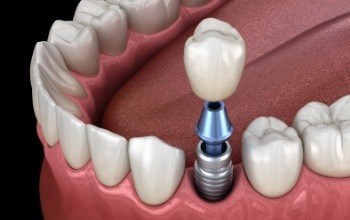
We can use a single dental implant post and secure a customized dental crown to the top of it to create a fully restored smile. This prevents us from altering any nearby healthy teeth as it would be required for a traditional dental bridge.
Missing Multiple Teeth

If you are missing multiple consecutive teeth along a row, we can insert two dental implants into the exterior spaces before the remaining teeth can sit on top of the posts as well as the gums. Creating a more stable foundation, they allow for greater functionality and longevity than traditional dental bridges.
Missing All Teeth

If an entire arch of teeth is missing along the upper or lower row, Dr. Yusupov can use four to six dental implants to easily restore your smile. Instead of settling for dentures that can slip or fall out, implant dentures fuse with the bone and make it easier to consume nutritious foods and smile more confidently.
It is also possible you may be eligible for Teeth in a Day. This unique process uses only four dental implants to support a full denture. Strategically placed during the planning and surgical phases, we will go over which option is right for you during your initial consultation. Teeth in a Day are ideal for patients with less jawbone density but who want the same results that only dental implants can provide.
Insufficient Bone & Zygomatic Dental Implants

If you have insufficient bone mass in the upper jaw, we can use zygomatic implants, which are significantly longer than regular dental implants and placed in the zygomatic bone. Because this particular facial structure does not lose bone density like the maxillary bone, these implants can provide the necessary support for a customized prosthetic, which can be placed the same day as your oral surgery.
Learn About Zygomatic Dental Implants
Partner With Your Dentist

We know comfort is important when undergoing dental work of any kind. Putting your oral health in the hands of someone you don’t know can also be daunting. This is why our team at Gold Coast Oral & Maxillofacial Surgery Steve Yusupov DDS, MD, FACS partners with your dentist to create a warm and welcoming environment where you can feel at home. We offer the same great comfort and personalization, so you can be confident the day you arrive for your procedure.
Dental Implant Failure & Salvage

It’s a rarity for patients to experience dental implant failure. The success rate is extraordinarily high; however, there is a possibility that complications can occur immediately following your surgical placement or even years down the road. Should you begin to experience problems with your dental implants at any point, call our office. Our dental team will work quickly to evaluate your situation and provide appropriate treatment to help preserve your new and improved smile.
Learn More About Dental Implant Failure & Salvage
Understanding the Cost of Dental Implants

At your initial dental implant consultation, we’ll put together an estimate of how much you can expect to pay for the treatment. The final price can vary from patient to patient based on their needs, and we’ll make sure that you have a firm idea of the overall cost before moving forward. We’ll also go over your financial options so that you can restore your smile without breaking the bank. Below is a brief overview of some of the factors that help determine the cost of dental implants in Roslyn.
Preliminary Treatments & Dental Implant Surgery
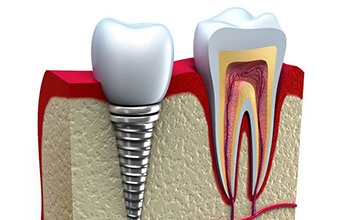
There are several preliminary treatments, such as bone grafting and tooth extractions, that sometimes have to be performed before dental implant placement. These treatments can add to the cost of the overall implant process, although in many cases they can be partially covered by dental insurance.
The cost of the actual dental implant surgery depends on where it is performed and what kind of sedation is used during the procedure. We can go over these factors in more detail during your consultation.
The Parts of Your Dental Implant
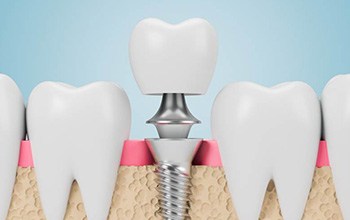
When it comes to the implants themselves, the overall cost depends on:
- How many you need. Patients who have a single missing tooth will only need one implant post; meanwhile, four or more posts might be required if an entire arch is missing.
- The type of restoration that the implant(s) will support. Smaller restorations like single crowns naturally tend to cost less.
- The kind of material used to make the implant post(s). Most of the time, titanium is used due to its durability and its high biocompatibility.
- The brand of the implant(s) used. Different manufacturers offer specific benefits. Feel free to ask about where your implants are coming from and what advantages you can expect.
How Dental Implants Can Save You Money

If you look at the initial cost alone, dental implants are more expensive than traditional dentures and bridges. However, the tradeoff is that implants can last for decades or even the rest of your life while dentures and bridges usually have to be replaced after 5 to 10 years. Thus, implants can save you money in the long term because you don’t have to pay for replacements as often.
Does My Dental Insurance Cover Dental Implants?

Most dental insurance plans classify dental implants as cosmetic dentistry and thus won’t pay for them. That said, some dental plans do provide such coverage. Furthermore, even plans that don’t pay for implants may still partially cover the final restoration or preliminary treatments. If you’re not sure what your benefits are, our team can review them with you.
Making Dental Implants Affordable

If you’re not sure how you’re going to fit dental implant surgery into your budget, you might consider applying for CareCredit third-party financing. CareCredit covers the cost of your care and lets you pay it back in manageable monthly installments. You can choose from several plans based on your financial situation, and there’s little to no interest involved. Call us today if you’d like more details about how our office works with CareCredit and how you can apply.
Advanced Dental Implant Procedures

During your initial implant consultation, you might be told that you’re not currently a good candidate for the procedure. However, this does not have to mean that you can never get dental implants. There are a number of procedures we offer that can prepare your mouth and jaw for the implant process, ensuring that your new teeth can last as long as possible. Below is a brief overview of the advanced procedures that can potentially be part of your dental implant treatment.
Bone Grafting
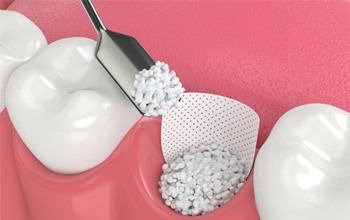
Bone loss is closely associated with tooth loss. Normally, the roots of your teeth stimulate the flow of blood in your jaw. Without your teeth, this stimulation is lost, and the jawbone starts to deteriorate as a result. If too much bone is lost, your jaw may not be able to support implants.
Fortunately, we can rebuild and strengthen the jawbone with bone grafting. For this procedure, we’ll need to open the gums so that we can access the underlying bone. Then, we’ll apply grafting material to the area. Usually, the material is bone tissue that has been taken from elsewhere in your body. It may take several months for your jaw to heal after bone grafting, but it will be worth it once you’re ready to receive your implant posts.
Sinus Lift
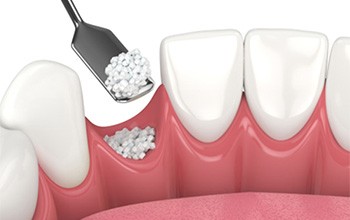
For this specific issue, we may perform a type of bone graft called a sinus lift. After opening the gums, we’ll gently lift the membrane holding the sinuses, then fill the space with grafting material. The sinuses are moved out of the way, and once the mouth heals there will be a sufficient amount of bone for implant placement.
PRP/PRF Treatment
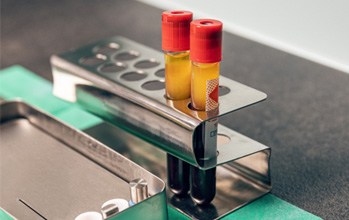
To aid the recovery process after dental implant surgery, we may suggest PRP (platelet-rich plasma) or PRF (platelet-rich fibrin) treatment. This involves taking a sample of your blood and placing it in a centrifuge to separate the growth factors that encourage healing. Applying these growth factors to the implant surgery site can dramatically shorten recovery time and make it less likely that you’ll suffer from an infection.
Ridge Expansion
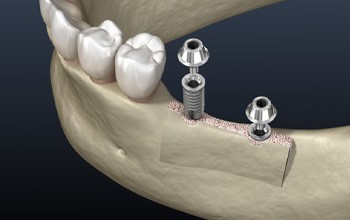
Sometimes we might find that the jaw isn’t wide enough for dental implants. To fix this problem, we can divide the ridge bone, carefully separate the inner and outer segments, and fill the space between them with the same kind of material used for bone grafting. In some cases, it may be possible to place dental implants on the same day as a ridge expansion, although it will depend on your specific circumstances.
Maintaining & Caring for Your Dental Implants
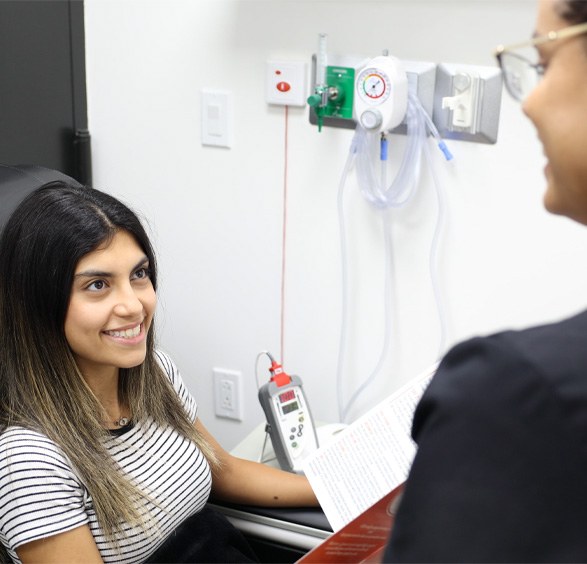
Dental implants are a lot like your natural teeth in that their lifespan largely depends on the kind of care you give them every day. A well-cared-for dental implant can last the rest of your life, so it pays to be proactive about keeping it clean and protecting it from damage. Below are some of the steps you can take to keep your dental implants safe. Our team can give you further advice as needed, so feel free to let us know if you have questions.
Make Oral Hygiene a Priority
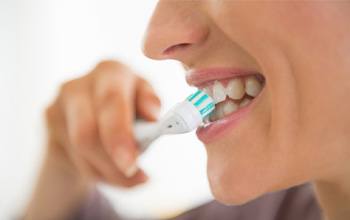
Brushing and flossing are just as important for your dental implants as they are for your natural teeth. Implants can’t get cavities, but they can fail if the bone and gum tissue holding them in place become infected. Thus, cleaning the area around your dental implants twice a day is a must if you want to avoid losing your implants to harmful bacteria. Remember that you should always pay close attention to the area where your implant restoration meets your gums.
Eat a Healthy Diet

The foods you eat can have a significant impact on your overall oral health. While an occasional piece of cake won’t lead to any major issues, a diet that’s high in sugar or starch could put you at risk for gum disease, which can easily lead to implant failure. If you’ve been eating too many sugary snacks or starchy treats, try swapping them out for foods that are more beneficial for dental implants and your mouth as a whole. This includes fruits, vegetables, dairy products, leafy greens, and lean proteins.
Break Bad Habits

Smoking, biting your nails, chewing on pens, using teeth to open packages, and crunching ice are all bad habits that can damage dental implants and eventually lead to failure. Since getting dental implants involves a significant investment, you’ll naturally want to avoid any habits that might end up breaking them and send you back to square one in terms of missing teeth. Figure out what steps you can take to stop bad dental habits, such as carrying sugar-free gum for chewing.
Protect Your Dental Implants
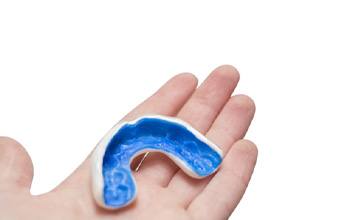
If you play sports or grind your teeth at night, you should get a mouthguard to protect your dental implants. This simple oral appliance protects your mouth from the worst of the damage whenever you get hit in the face or mouth. It also stops the upper and lower arches of teeth from making direct contact with each other, which relieves much of the pressure that constant grinding and clenching can expose them to.
Schedule Regular Dental Checkups

Your regular dentist can check your dental implants for signs of damage during your regular dental checkups. They can also make sure that the tissues around the implant posts are healthy, and they can recommend treatment if there are any issues that might put your new teeth at risk.
Dental Implants Post-Op Instructions

After you’ve had your dental implant placement surgery, it will take some time to completely recover. We will give you specific post-surgery instructions to help you recover quickly and comfortably. If you have any questions or concerns following your procedure, don’t hesitate to give us a call so we can help.
What to Do Directly After Dental Implant Surgery

The number one priority during the healing process is to leave the blood clot at the surgical site alone. This is necessary for the process to go smoothly. Here are some of the rules to achieve this:
- Don’t spit. Use a tissue or swallow your saliva
- Don’t use a straw when drinking liquids
- Don’t smoke immediately after surgery
- Keep your tongue and fingers away from the surgical site
Common Side Effects When Recovery from Dental Implant Placement

Some minor side effects are common for a few days after surgery. Here are the most common ones:
- Bleeding: Minor bleeding is common for a few days after surgery. This will subside with gauze and light pressure.
- Swelling: For the first 72 hours after your procedure, inflammation is likely. Use a cold compress to reduce this.
- Discomfort: Soreness is normal after dental implant placement surgery. This can be managed with recommended over-the-counter and prescribed pain relievers.
Your Diet After Dental Implant Surgery

After your procedure, it’s best to stick to soft foods for a little while to avoid aggravating the surgical site. Here are some food suggestions:
- Scrambled eggs
- Oatmeal
- Soup
- Mashed potatoes
- Yogurt
- Apple sauce
- Pasta
- Pudding
- Ice cream
Post-Op Health & Oral Hygiene

The day after your surgery, you can brush your teeth as normal. However, you should be especially careful to avoid the site of the implants. To keep this area clean, gently rinse your mouth with salt water two to three times a day after your meals. When using mouthwash, make sure that you choose one that doesn’t contain alcohol. This can aggravate the surgical site.
What to Do After Your New Teeth Are Attached

Now that your replacement teeth are attached, the hard part is over! You may experience some minor sensitivity as you adjust to your restoration, but this should be easy to manage with over-the-counter pain relievers. You shouldn’t encounter any swelling, bleeding, or extensive recovery. Now, you can show off your complete smile to the world!
Dental Implant FAQs
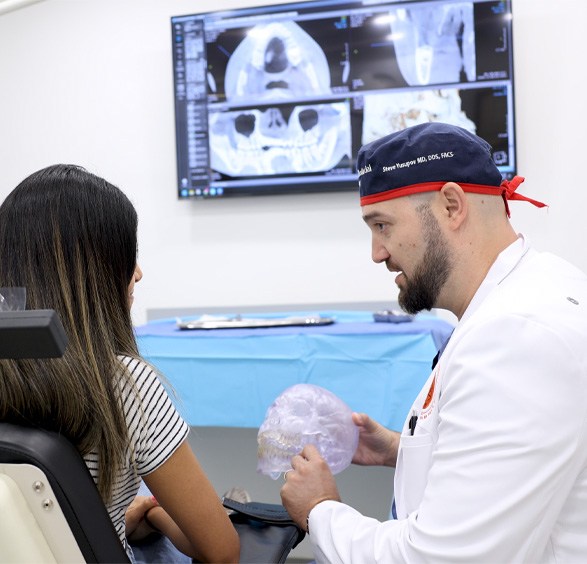
Whether you’re learning about dental implants for the first time or you’re concerned about the prospect of undergoing oral surgery, our team is happy to answer any and all questions you may have about this tooth replacement option. We’ve helped countless patients address their concerns one-on-one and have included a list of some of the most common questions we’ve heard below for your convenience. If yours is not listed, please feel free to contact us directly or schedule a consultation.
Are Dental Implants Safe?
Patients who are in good health can expect a very successful treatment outcome following dental implant placement as long as the procedure is performed by a qualified professional. Keep in mind that if you have low jawbone density or gum disease, these problems must be addressed before you can receive surgery. Additionally, we’ll need to examine your eligibility more carefully if you have any pre-existing conditions. This includes those with diabetes, cancer, or conditions that affect your body’s ability to heal. In instances like these, surgery may be more risky, but not necessarily impossible.
Does Getting Dental Implants Hurt?
Your mouth is thoroughly numbed with a local anesthetic prior to starting the procedure. This ensures you feel no sensations whatsoever during your surgery (even though the jawbone does not have any nerve endings, we don’t want to run the risk of you experiencing any sensations in your soft tissues). For additional comfort, we can also administer varying strengths of sedation. Sedatives also work to remove any potential discomfort during surgery. While removing teeth and placing your dental implants should not hurt, you will be sore for the next few days afterwards. This is normal after any oral surgery and can be easily mitigated using medication and cold compresses. If you experience any discomfort or you feel it’s getting worse after two or three days, call our office.
How Long Does It Take to Recover from Dental Implant Surgery?
After surgery, most patients are able to resume normal activities a day or two later. You’ll need to avoid any strenuous exercise for a week or so to prevent any healing delays. Bleeding from the treatment site should stop after a couple days and swelling should improve after three to four days. Of course, your treatment case will be unique compared to others and you’ll need to monitor your side effects closely. Just make sure to take all prescriptions as instructed by our office. In most cases, the dental implants will need anywhere between 3 and 6 months to fuse with your bone tissue, even though your recovery period should only take two weeks at the longest.
Will People Be Able to Tell That I Have Dental Implants?
We capture digital impressions of your mouth and use this as a blueprint for your future implant restorations. This ensures that your new tooth is fully personalized to you and fits exactly inside your mouth. After your dental implants are placed (which we do using 3D-printed surgical guides) and covered with a crown, bridge, or denture, no one should be able to tell the difference between your replacement teeth and your natural ones.
More About Dental Implants
Implants are the standard of care for replacing missing teeth. In layman's terms, it’s referred to as the anchor or the screw. Dental implants serve as the bony anchor to support the crown, which is the tooth. Placement of a dental implant is a surgical procedure, where sequential and very precise steps are taken to prepare the bone and subsequently place the dental implant. The procedure is most commonly done with intravenous sedation in the office with minimal post-operative downtime. The dental implant goes through a period of healing called osseointegration, which usually takes 3 to 6 months. During this period the implant is not seen as it is covered by the gingiva and remains submerged. Once the implant is integrated the stage 2 procedure is performed where an extension of the implant is placed through a small incision in the gum. This is known as the healing abutment, which allows the gums to heal around the healing abutment. This step takes approximately 2 weeks, after which the restorative dentist can start the process of fabrication of the implant crown - the tooth.
Even though the concept is fairly simple, the procedure is technique sensitive and requires precise planning to yield the most optimal result. In many instances to achieve the most optimal final result as well as long-lasting restoration, the underlying bone and soft tissue need to be optimized. The details of grafting are outlined in the bone grafting section.
Once the missing tooth site is optimized (adequate bone and soft tissue) the placement of dental implants can be further perfected via virtual surgery, 3D printing, and guided surgery. This cutting-edge technology that is used at Gold Coast Oral & Maxillofacial Surgery Steve Yusupov DDS, MD, FACS guarantees the most optimal setup for the restorative dentist and ultimately successful outcomes for the patient.
The typical process to get a dental implant starts with evaluation via a clinical exam of the site where one or several teeth are missing. This is usually followed by a cone beam CT scan, which is a low dose radiation 3D image to assess the bone volume and quality. Additionally, a 3D scan of the teeth is performed. This is the novel way of obtaining the impression of the teeth that replaced conventional impressions that were done using trays and flowing material that needs to sit in the mouth to solidify. A lot of times after all this data has been gathered a virtual surgery will be performed to determine the most optimal implant position. To transfer that planned position into reality a guide is 3D printed which will guide the surgery to the most precise position within a fraction of a millimeter accuracy.
Postoperatively analgesics and antibiotics are usually prescribed and discomfort is comparable or less than after extraction of a tooth. Once integrated and the healing abutment is put on, the restorative dentist fabricates the crown. After completion of the entire process, the restored dental implants look like and function like natural teeth. However, an implant just as a natural tooth can be lost if not cared for properly. We recommend routine follow-up with the restorative dentist and yearly follow-up with Dr. Yusupov.
Oral Surgery Maxillofacial Surgery IV Anesthesia/Sedation View Our Services
